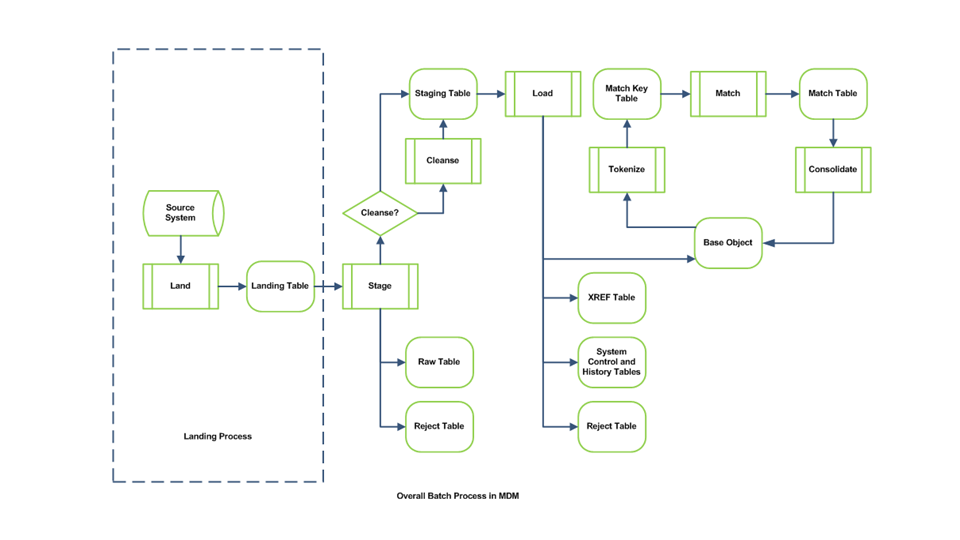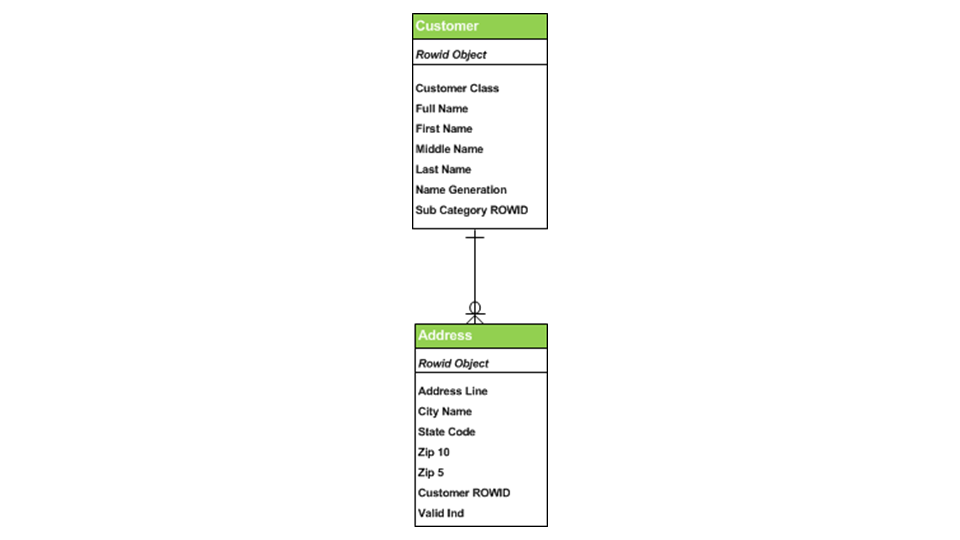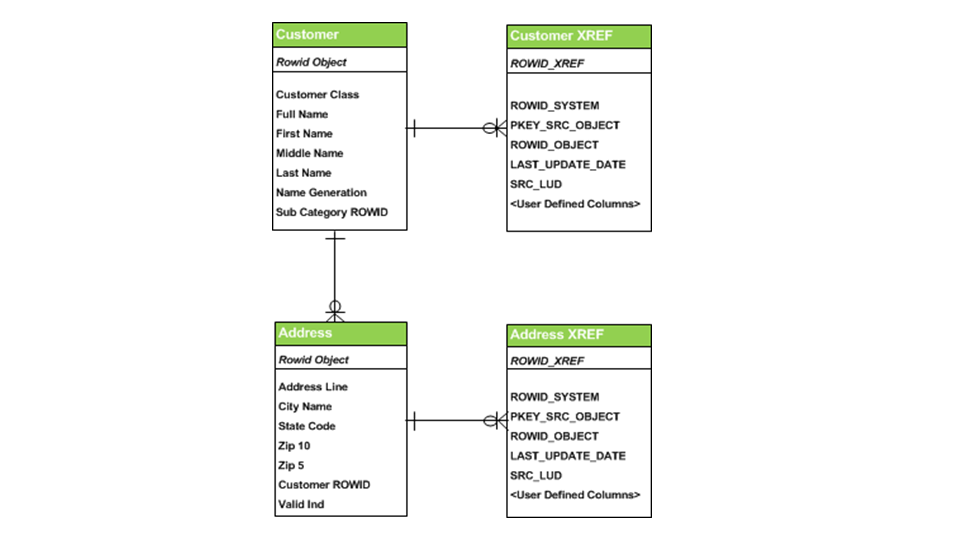Informatica MDM Landing Process
Landing Process:

Landing Tables
The entry point of the source data into the MDM Hub.
No constraints or referential integrity.
Important columns in a landing table:
Last Update Date – Date on which the record was last updated on the source system.
Primary Key Identifier column’s – A column or a combination of columns that would form the basis of a primary key.
The mode by which source system load data into the landing tables is completely external to MDM Hub.
Some general modes of loading data into the landing table are:
1. ETL Process.
2. SQL Inserts.
3. Online System.
Contains Full Data Set Property – Specifies whether the landing table contains full data set from the source system or only updates
If selected, then TRUE
If not selected (default setting), then FALSE
Useful for the “Delta Detection” process during stage load.
Base Objects:
Stores the central business entities – such as customers, accounts, or products
Represents the “best version of truth” for an entity
Provides functionality for matching and merging data
Built-in lineage (cross-references) and history
Supports Trust & Validation rules
Unique key is ROWID_OBJECT
ROWID_OBJECT is generated and managed by MRM

XREF Tables:
Each Base Object has underlying cross-reference (XREF) table
XREF created and managed by MRM
XREF maintain source system lineage data

Important columns of XREF table:
ROWID_XREF – Unique primary key of XREF table
ROWID_SYSTEM – Unique identifier of the source system
PKEY_SRC_OBJECT – Unique key from the corresponding stage table
ROWID_OBJECT – Unique identifier of the base object record
LAST_UPDATE_DATE – Date on which record was last updated in the XREF table
SRC_LUD – Date on which record was last updated in the source system
Here, you can go through all materials regarding Informatica MDM. Therefore, these blogs are more helpful to get more information.

Mahesh J
Author
Hello all! I’m a nature’s child, who loves the wild, bringing technical knowledge to you restyled.